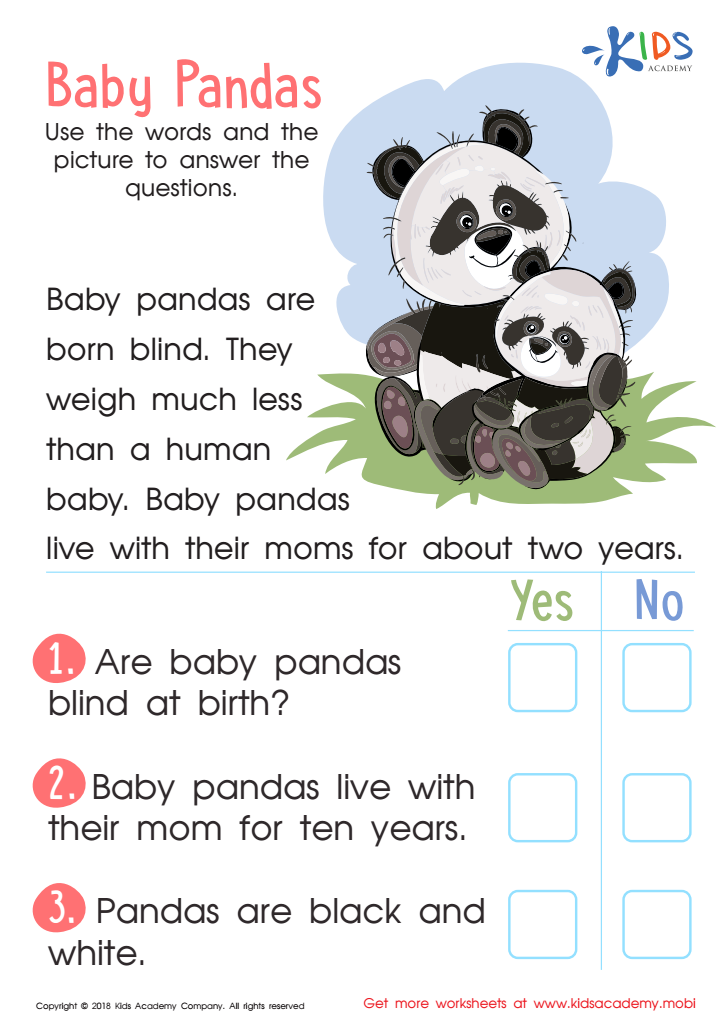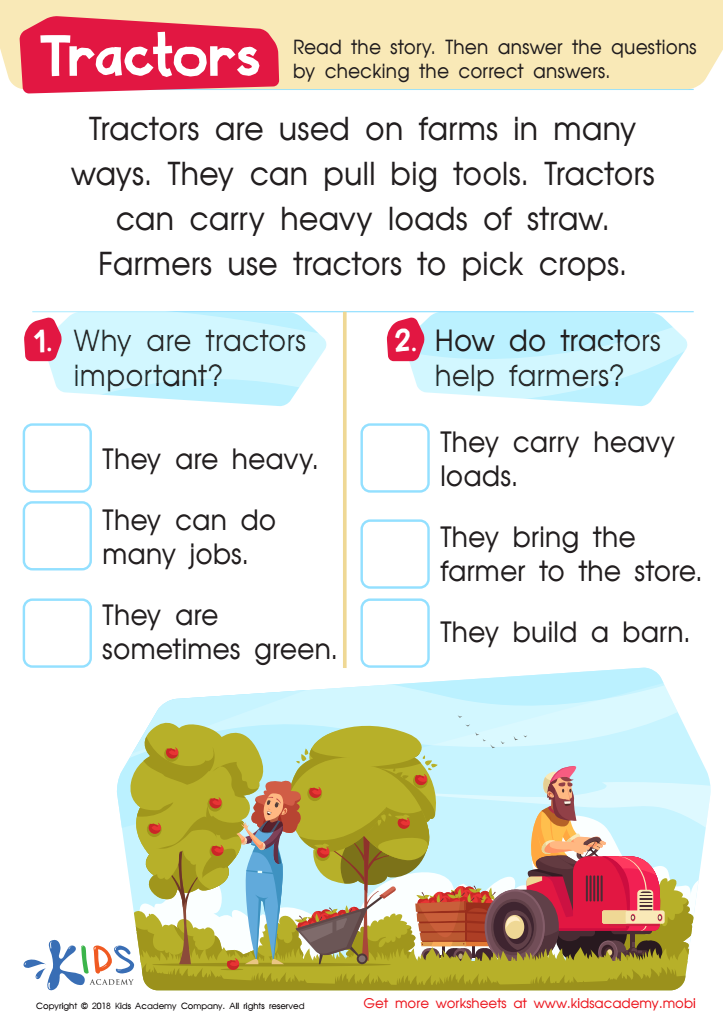Counting practice Easy Reading Non-Fiction Worksheets for Ages 3-8
3 filtered results
-
From - To
Discover engaging Counting Practice Easy Reading Non-Fiction Worksheets designed specifically for children ages 3-8. These worksheets combine essential counting skills with captivating non-fiction content, making learning both fun and educational. Each activity encourages young learners to explore numbers through vibrant illustrations and relatable themes, fostering a love for reading and mathematics. Ideal for parents and educators, our worksheets promote cognitive development and reinforce early numeracy concepts. Encourage your child’s growth in counting and comprehension with our thoughtfully crafted resources, perfect for home or classroom use. Start your counting adventure today and watch your little one thrive in both reading and number mastery!


More Octopus Facts Worksheet


Baby Pandas Worksheet


Tractors Worksheet
Counting practice and easy reading non-fiction for ages 3-8 are crucial for developing foundational skills in young children. First, counting is an essential mathematical concept that lays the groundwork for further mathematical understanding. By integrating counting with engaging non-fiction topics, children can associate numbers with real-world contexts, making learning more meaningful and enjoyable.
Furthermore, easy reading non-fiction encourages early literacy skills. At this age, children are not only learning letters and sounds but also how to comprehend and enjoy texts. Non-fiction books introduce them to a variety of subjects, expanding their vocabulary and knowledge of the world around them. Encouraging curiosity through meaningful content fosters a love for reading and learning.
Parents and teachers should also recognize the potential of these resources in supporting critical thinking. Counting in real-world scenarios helps children develop reasoning skills and engage in conversations about their environment. Additionally, interactive counting books encourage playful learning, allowing kids to grasp numbers through tactile and visual experiences.
Ultimately, valuing counting practice and easy reading non-fiction for young children promotes cognitive development, prepares them for academic success, and nurtures their natural curiosity, making it a fundamental focus in early education.
 Assign to My Students
Assign to My Students














